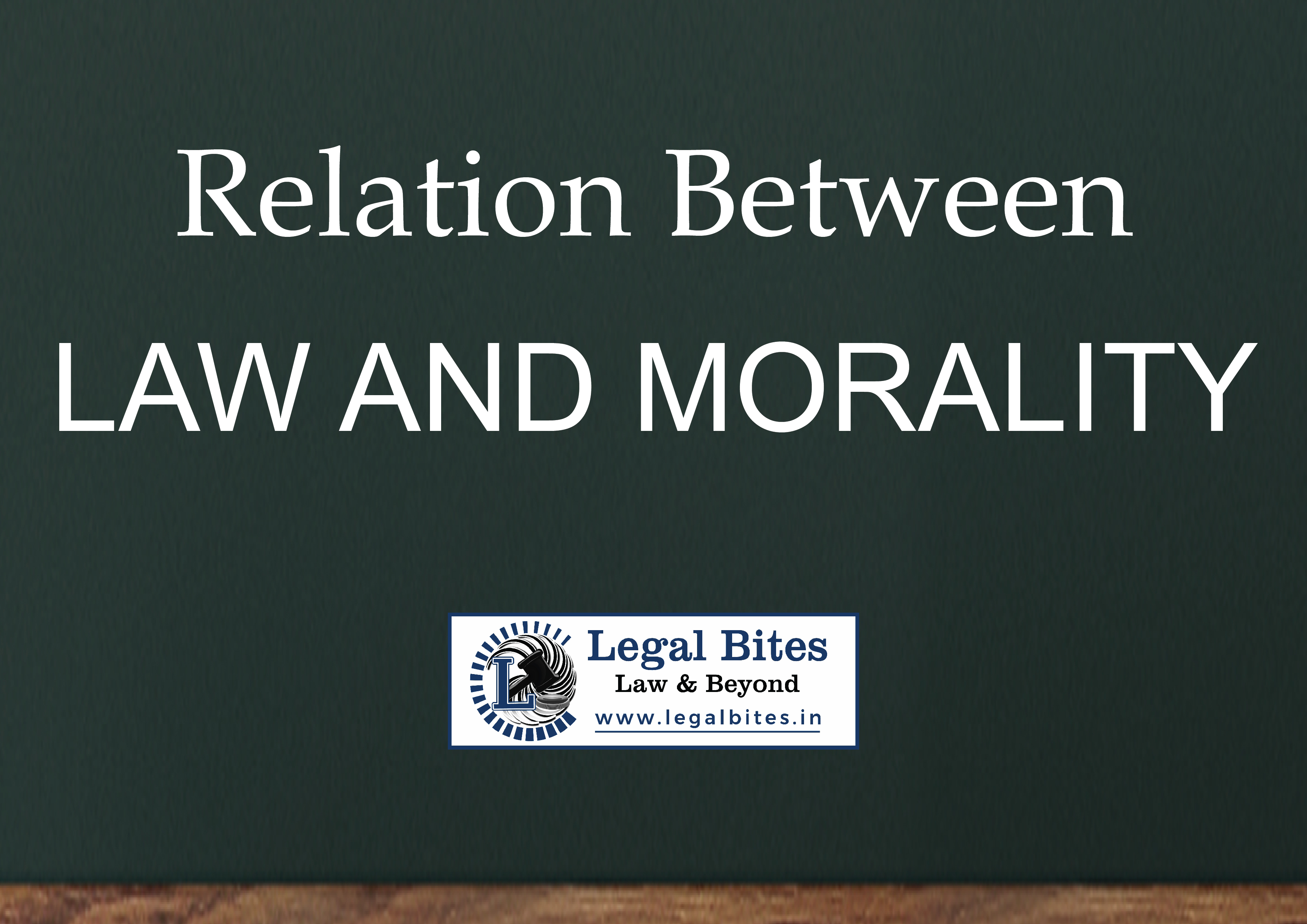Several jurists and thinkers have often deliberated upon the unique relationship between law and morality.

Several jurists and thinkers have often deliberated upon the unique relationship between law and morality. While positivists have strongly contended that law should be studied in complete isolation from ideas such as that of morality, there is a general agreement amongst lawmakers regarding the important part played by morals in effective law-making. Let us evaluate the relation between law and morality in further detail. Difference between Law and Morality In Ancient Societies, there...
Several jurists and thinkers have often deliberated upon the unique relationship between law and morality. While positivists have strongly contended that law should be studied in complete isolation from ideas such as that of morality, there is a general agreement amongst lawmakers regarding the important part played by morals in effective law-making. Let us evaluate the relation between law and morality in further detail.
Difference between Law and Morality
In Ancient Societies, there existed no distinction between law and morality. Both of them were considered to be the same. With the advent of the middle ages, the law was given a moral basis by religion. In the post-reformation era, modern thinkers strongly emphasized the distinction between law and morals.
According to Arndts, there are four points of distinction between law and morality:
- Law is concerned with the individual liberty of a person, whereas morality deals with the collective ideas of what is good and bad.
- Law regulates the conduct of a man as long as he is a member of a specific community, whereas morals guide the conduct of man even when he is all alone.
- Laws take the external acts of a man into consideration, whereas morals look towards factors such as inner determination and direction of the will.
- Law is enforced by way of "external coercion", whereas morals appeal to the free will of an individual.
Correlation between Law and Morality
The correlation between law and morality can be studied from three different angles:
- Morals as the basis of law- In the early stages of society, there existed no clear distinction between law and morality. All rules regulating human conduct originated from a single source. All of them have been naturally made out of supernatural fear. When the State came into being, it picked up those rules which were important for the development of the society and converted them into law. Thus, both law and morals have a common source. They differed in the course of their individual development.
- Morals as a test of law- Several jurists are of the belief that law must conform to morals. When natural law theories were popular, it was opined that positive law must conform to natural law. Natural law was viewed as the highest form of law. In modern times, such a view is not prevalent. Today, the law is not tested on the basis of morality. However, a close study indicates that a majority of laws nevertheless conform to morals. This is so because morality is an important part of any society, and law is deeply interrelated with society.
- In the words of Paton, "If the law lags behind popular standard, it falls into disrepute; if the legal standards are too high, there are great difficulties of enforcement."
- Morals as the end of the law - Many jurists hold the opinion that morals are indirectly the end of the law. The purpose of the law is to ensure effective administration of justice, and the idea of justice is often defined on the basis of morality. Therefore, morals are the end of the law.
The sociological approach in jurisprudence is concerned with the ends of the law. As a result, morality has become an important aspect of good law-making. Morality and morals also influence international law. If the law aims to occupy an important position in the lives of the people, it cannot be ignorant of morals and morality.
References
- V. D. Mahajan, 'Jurisprudence and Legal Theory', Fifth Edition, Eastern Book Company.
- W. Friedmann, 'Legal Theory', Fifth Edition, Sweet & Maxwell (South Asian Edition).


